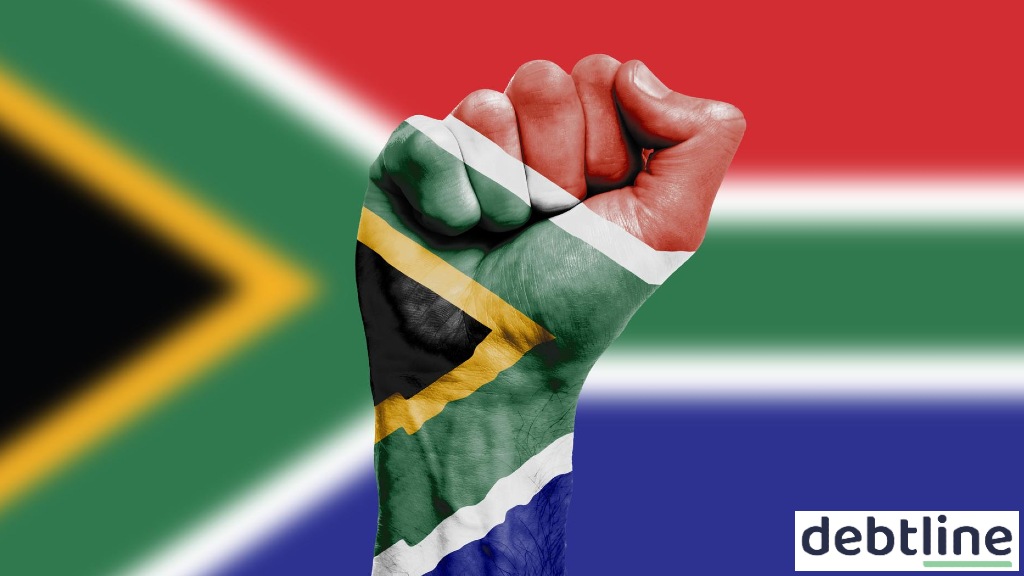Post-Elections: What is the Economic State of South Africa?

The 2024 election in South Africa has marked a turning point in the country’s political and economic landscape. For the first time since the end of apartheid, the African National Congress (ANC) failed to secure a majority, obtaining only 40.18% of the vote.
This shift has ushered in a period of economic uncertainty and market volatility, posing both challenges and opportunities for the nation.
Political Landscape and Market Reaction
The ANC’s loss of majority means that a coalition is now a reality. At first, the potential configurations of these coalitions caused concern among investors. The Democratic Alliance (DA) won 21.8% of the vote, and the newly formed uMkhonto we Sizwe Party (MKP), led by former president Jacob Zuma, garnered 14.6%.
Read: Comparing the Top 6 Political Parties in South Africa
The formation of a coalition government, particularly one that might include the MKP, was seen as a potential source of market instability due to the party’s radical economic agenda.
However, now that the official “Government of National Unity” coalition has been signed between the ANC and the DA, the future may be a little brighter.
Before the coalition was officially announced, Old Mutual group chief economist Johann Els commented the following: “The probability of a coalition or minority government remains significant, which likely suggests a continuation of current policies. However, the possibility of a more populist coalition cannot be discounted.”
Read: Which South African Bank Will Save You Money?
This statement underscores the uncertainty hanging over South Africa’s economic future, and with the coalition deal sealed, there’s no telling what the future may hold.
Economic Implications and Investor Caution
The immediate aftermath of the election results saw the Rand and equity indices decline, reflecting investor anxiety. It’s not unusual for markets to remain unsettled in the weeks following an election, especially when coalition discussions are still open.
During that time, the Rand experienced extreme volatility, and there was potential for a sharp sell-off as risk premiums rose. This volatility mirrored what was experienced in December 2015, when the replacement of former finance minister Nhlanhla Nene triggered a sharp market reaction.
Read: Household Affordability in South Africa – Insights and Strategies
Now that things have settled, investors are still advised to remain cautious. It has been emphasised that it is important to stick to established financial plans and consult financial advisors before making any significant changes.
It’s at times like this that patience is often the best approach until the situation becomes more transparent.
South Africa Has Resilient Economic Strengths
Despite the current political turbulence, South Africa boasts several robust economic institutions and strengths that can help overcome any risks from political changes.
“It is crucial to remember that South Africa has significant inherent strengths that will mitigate political risks. These include a strong constitution with entrenched rights, an independent judiciary, a free media, and strong independent institutions such as the South African Reserve Bank (SARB), the Treasury, and the South African Revenue Service (SARS),” says Els.
Read: How To Tackle South Africa’s Biggest Financial Challenges
These institutions provide a stable foundation, even as the political environment shifts. The end of the state-capture era has also fostered a resilient private sector crucial to the economy, particularly in areas where state-owned enterprises have faltered.
Future Outlook and Strategic Considerations
As coalition talks have now wrapped up, South Africa’s political and economic future is more stable than before. The African National Congress solidified coalition negotiations with the DA and the smaller Inkatha Freedom Party (IFP) to form national unity. This is seen as a stabilising force that could restore investor confidence and promote economic growth.
With the ANC losing its majority vote after the end of apartheid 30 years ago, there’s a seismic shift in the South African political landscape. These newly formed coalitions could introduce significant policy uncertainty and regulatory challenges. Thus, business leaders and investors must stay vigilant and adaptable, preparing for various potential outcomes.
New Opportunities Await for South Africa
South Africa’s 2024 election results have undoubtedly reshaped its political landscape, creating an environment of uncertainty but also opening doors for potential reform and growth.
The strength of South Africa’s economic institutions offers some reassurance amid the turmoil. Johann Els aptly says, “The new political landscape presents opportunities for policy reform and economic growth, ensuring a positive outlook for the country’s future.”
As South Africans navigate this period of change, services like Debtline can offer crucial support.
Debtline provides expert financial advice and solutions to help individuals manage their debt and achieve financial stability, ensuring they are well-prepared to face the economic challenges ahead. If you need sound financial advice or want to know more about debt review, fill out our online form for a free callback.